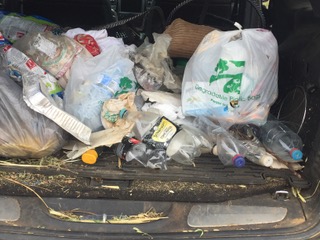World Wetlands Day - Feb 2
- Regional Victorians Opposed to Duck Shooting Inc.

- Feb 2, 2018
- 2 min read
Is this a "wise use"?
Why should we care about wetlands? Well, basically, wetlands make life liveable.
Amongst other critical functions, wetlands reduce flooding, replenish drinking water and filter waste. Consider them the "kidneys" of community, absorbing around 60 percent of the world's carbon. With the increasing occurrence of extreme weather events threatening our way of life, this is important.
There is a reason a global treaty exists to promote conservation and "wise use" of wetlands, including a focus on ensuring diversity and abundance of life amongst them.
Sadly, according to an Auditor General's 2016 report, Victoria's track record in maintaining our critical wetland habitats is not great.
Perhaps one thing we could do, is ban duck shooting at our wetlands in Victoria, same as other states have already done.
According to independent expert research, our native waterbirds - some rare and unique to Australia - are experiencing a "long term decline in abundance, breeding and habitat". Further, insufficient data exists to be able to really know what the impact of shooting seasons is on bird populations. Logic assumes that shooting otherwise healthy birds would not be good for a species survival.
The Queensland Government "believes there is a need to continue to protect native ducks under the ACT in order to secure the long-term sustainability of duck populations in the wild". (Dr Stephen Miles, MP, March 2017)
"WA's native wildlife should be protected, admired and respected, not shot for pleasure". (Bob Pearce - MP)
Victorian wetlands, like Kakadu, are not only home to amazing birdlife, but are rich in aboriginal culture which, whilst could be a lucrative tourist drawcard, is instead also under threat from shooting.
Often near pits where bird remains are found, are remnants of precious habitat chopped up for firewood including aboriginal scarred trees, remnants of illegal fires and rubbish including plastic bags, ammunition cartridges, soiled toilet paper and animal body parts, left behind by shooters.
Toxic lead has accumulated over decades at waterways where shooting has occurred and even though now banned, leadshot has been reported as still used.















Comments